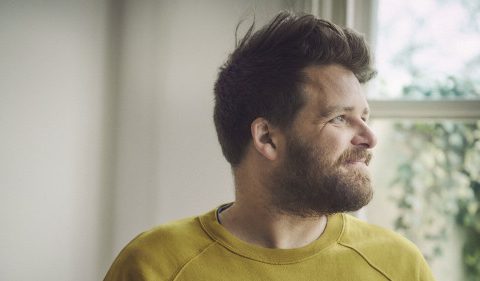
We Grill – Tom Hunt
Tom Hunt is an eco-chef, food sustainability consultant, food writer and co-founder of Poco Tapas Bar in Bristol which won the Best English Restaurant, Best Independent Restaurant and Best Restaurant at the Food Made Good Awards in 2016. Tom has taught food sustainability at Le Cordon Bleu London and his book Eating for Pleasure, People & Planet is out in March.
Tell us about Poco Tapas Bar…
Poco is a seasonal tapas restaurant with a core focus on ethics and sustainability. The dishes are small plates made with seasonal, British food. Most of the fresh produce is sourced within a 50 mile radius of the restaurant; they are 70-80% organic and 100% seasonal. We don’t use any imported fresh products and have recently pledged to only serve low-carbon meat. The quality of our ingredients match that of any Michelin-starred restaurant. However, in line with our ethos, we serve our food in a relaxed environment at an affordable price that aims to build a strong community around the restaurant.
Describe the menu…
My manifesto is called Root to Fruit eating. It’s a food sustainability philosophy with three key points: eat for pleasure, eat whole foods and eat the best food you can. Our menu is created using with these points in mind. We cook everything whole to produce zero waste, because all our veg is organic and local we never peel it. We also leave stalks and leaves on them too. This approach not only helps the environment but is a financial saving too, which then in turn helps us to keep the cost of our dishes down. We only cook with low-carbon meat like wild game and offal, and 75% of our menu is plant-based, lowering our carbon even further.
How can an outlet be more sustainable?
The world is facing a serious climate crisis, and our food system has one of – if not the – biggest impacts on the planet. We have to take responsibility for this impact by serving the best quality food we can. Where our food comes from makes a huge difference in terms of this impact. From the right suppliers we can even benefit the environment. Therefore buying food from small, chemical free, local farms is the best way a business can become more sustainable. Buy as much local, seasonal food as you can, and try to opt for low or no-spray vegetables too. Make your menu seasonal and focus your dishes on these ingredients. Be proud of the quality of your ingredients and make them more affordable by shifting dishes to be more plant focused and highlight this on your menu – I’m sure your customers will be impressed that you’re buying local while trying to do your bit to save the planet!
But is it expensive?
It may cost more to buy organic and better farmed ingredients but by cutting down on waste and increasing the plant to meat ratio on your dishes you can create a budget that will allow for you to purchase these better quality ingredients.
When did you become conscious of sustainability?
I’ve always been aware of food sustainability and environmental issues. However, I first decided that it would be my main focus in 2011 when Tristram Stuart, author of the book Waste, invited me to cook a banquet with food that would otherwise have been wasted. It was a huge eye opener for me and made me rethink how I operate, realising that I could have a positive impact on the environment simply by the way I cooked.
What is your favourite dish?
At the moment, it is more of an ingredient than a dish – cider vinegar. It is very simple to make and is a great way to turn wasted or windfall apples into a highly valuable product that can save you a lot of money while increasing the quality of your menu.
How did your love of food develop?
I’ve always been passionate about food from as long as I can remember and I think that’s because of my family. We always ate around the dinner table, every night, as a family. Mum was always cooking. It was never perfect, and sometimes from a packet, but nevertheless she always made a home cooked meal for her family and that has had a massive influence on me.
What is your career history?
Since a young age I’ve been passionate about food and art, so in 1997 I helped my friend Ben Hodges cater for weddings before heading up the catering for a chalet in Val d’Isère during the 2003 ski season when I was just 23 years old. Thanks to being able to create my own menu, I was able to find my feet with food: I learnt how to budget, experiment and write recipes. It helped build my confidence before returning in 2004 to a job as sous chef at the prestigious River Cottage in Dorset working with TV chef Hugh Fearnley-Whittingstall. While working for Hugh, I set up a festival cafe which served posh wraps and salads at British music festivals – our first being Glastonbury. Then, in 2011, Poco Tapas Bar opened in Bristol.

